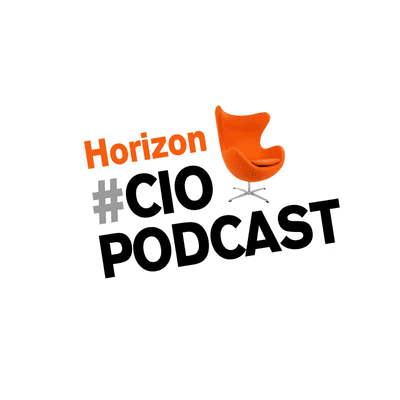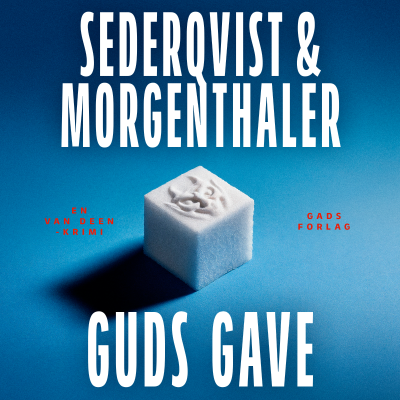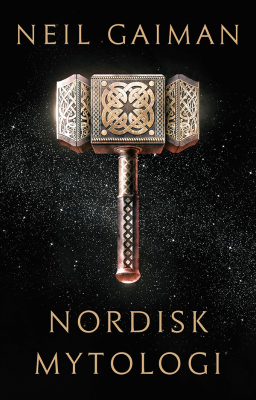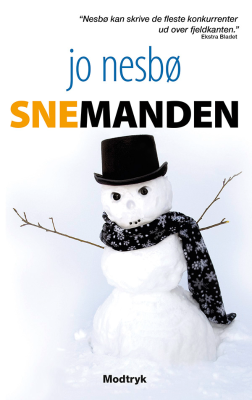
Horizon CIO Podcast
engelsk
Business
Begrænset tilbud
2 måneder kun 19 kr.
Derefter 99 kr. / månedOpsig når som helst.
- 20 lydbogstimer pr. måned
- Podcasts kun på Podimo
- Gratis podcasts
Læs mere Horizon CIO Podcast
CIOs and innovation leaders join Mark Chillingworth, Horizon Editor & leading CIO commentator, to discuss business technology leadership
Alle episoder
16 episoderCIO Podcast: The important role sponsors play in business change
The role of the sponsor in a major business transformation is vital and as this episode of the Horizon CIO Podcast reveals, not always well understood or specified by the business. To get some insight into the role of the sponsor HR transformation specialists Joe Ales and Jason West of Underscore Group described how they help organisations get the most from sponsorship. “Sponsors are the most critical role in a business transformation, they define what the transformation is going to achieve and what the end state will look like,” says Ales on the podcast for business technology leaders. Challenged on whether a sponsor should be from the technology leadership team if there is an IT element to the transformation, Ales says: “They have to be close to the activity that the programme impacts and a leader that can articulate what the future will be.” West agrees: “Being the sponsor is a critical role because the vision comes from the sponsor and they have to know what the future state looks like, but they cannot be dogmatic as the vision will change,” he says in regards to change that may be outside of the control of the business, such as technology developments or new regulations. The duo have delivered a number of business transformations in a wide range of vertical markets and tell the CIO Podcast that it is vital that the requirements of the sponsors role are clearly defined by the business, especially if the sponsor is not from IT, but the change programme has a large technology element to it. “No one describes what the role of sponsor actually is in a lot of cases, yet there is a level of risk associated with it both for the sponsor and the organisation,” West says. He adds it is important for the sponsor to be a good user of data to understand where the business is and the reasons for the change programme. In both West and Ales’ experience sponsors need to be able to make quick decisions. ++++ Download your copy of the Underscore Transformation Scoping Checklist here: https://www.underscore-group.com/insights/white-papers/ [https://www.underscore-group.com/insights/white-papers/] This white paper is the first of a series, looking at the four phases of a successful transformation programme: Scoping, Build, Transition, and Sustain. In the Scoping Checklist, we explore the 10 critical success factors to scoping a successful transformation programme, covering everything from requirements gathering, through to how to write an effective business case.
Horizon CIO Podcast: Understanding Security Ratings
Ratings agencies are a fact of life for the financial community and as cyber security rises in importance, so too must the security of an organisation be rated. Security rating platforms is a rapidly growing area of the security technology market. “Ratings give you the ability to tell a story that is not just about firewalls. There has been an evolution of the way that we present to the CEO and the board,” “A security rating is a measurement of the cyber security performance carried out by an independent agency,” says Jake Olcott, VP of BitSight a security ratings provider. Adding that they are used for third party analysis of suppliers as well as first party - internal performance management. “We are rating organisations by their performance using externally collected data and then we place them on a measurement scale of 250 to 900; 250 being poor and 900 outstanding,” Olcott says. BitSight was founded in 2011 and has been adopted by a number of Fortune 500 businesses in the USA and is incerasing its UK and European presence. Olcott says adoption is being driven by organisations keen to gain a better understanding of their security against rivals or the wider business community. Rising levels of transparency are part of this adoption. Investors and insurance companies are looking to get a better understanding of how the businesses they insure or invest in are performing. Olcott says CIO customers use the ratings to improve their management and relationships with third party suppliers and also demonstrate to the organisation where there are gaps in the organisational security. “Ratings give you the ability to tell a story that is not just about firewalls. There has been an evolution of the way that we present to the CEO and the board,” Olcott tells the Horizon CIO Podcast. “The major use case is for third party monitoring, as there has been a dramatic increase in attacks on vendors, contractors and the supply chain,” Olcott adds of how CIOs and CTOs are using security ratings. To learn more, listen in.
CIO Podcast: Wellcome Trust CTO James Thomas
Wellcome Trust chief technology officer (CTO) James Thomas told a Horizon CIO Network roundtable how his organisation has built a new operation with data and change at its heart. Talking to CIO and CTO peers from FTSE 100 organisations Thomas gives a frank insight into how to deliver change and reveals how he created a new culture and set of measurements to benefit the organisation and its technologists. The Wellcome Trust is headquartered in central London, but owes its philanthropic heritage to an American, Sir Henry Welcome who moved to the UK in 1880 to set up a pharmacy business, one which thrived and went on to become one of the most important global makers of treatments, for example inventing the tablet. As well as building a pharmaceutical giant, Sir Henry Wellcome was passionate and curious about medicine and travelled the word collecting artefacts and history about the treatment of illness and its cures, all of which is today housed in the Wellcome Collection in London, just a stone’s throw from the St Pancras Eurostar terminal. Over the last three years Thomas has been operating on getting the technology and technologists of the Wellcome Trust fit for the changing landscape any organisation faces. “We created a new target operating model (TOM) which set out how to get us away from old ways of working. For example, we delivered projects to parts of the Wellcome Trust to a timeline they set,” Thomas adds that this had the potential to create issues with the technology operations. As CIO of the UCLH hospital in London, Thomas pioneered the use of customer journeys for patients visiting a hospital for a treatment and the CTO brought that same level of experience to the Wellcome Trust. For scientists seeking Wellcome Trust funding to research a cure or treatment the route to funding, Thomas found, was complicated and did not serve the Wellcome Trust or the scientist well. Tune in to hear more. https://wellcome.ac.uk/ [https://wellcome.ac.uk/]
CIO Podcast: AI, the law and ethics
The first Horizon CIO Network roundtable event of 2019 focused on how organisations can implement artificial intelligence (AI). CIOs from major financial services, medical, retail, education, manufacturing and housing joined the debate. Keynote for the event was Alistair Maughan, who has been a partner with leading law firm Morison Foerster LLP since 2004 and at the forefront of technology law throughout his career. Maughan told a room full of CIOs about ethical and legal implications of AI. “For almost 30 years now I've seen successive waves of technology evolution breaking on the shore from, offshoring and cloud and robotic process automation,” Maughan said of his career in technology law. Maughan told the CIOs that AI differs from previous iterations of technology implementation as the relationship between the CIO’s organisation as a user and the supplier of the AI technology is far more “collaborative”. The lawyer goes on to describe how the relationships are complicated as the data belongs to the CIO’s organisation, and arguably the customer, but the AI technology of course belongs to the supplier. “Lawyers tend not to like things that are joined as it does not work well, from a legal perspective, it sets my teeth on edge, a joint obligation means I can't really enforce it. Joint ownership of intellectual property doesn't work very well. It's just much more complicated.” Scare stories Maughan has worked on a number of legal cases involving AI and reassured the CIO community that this technology is not the worrisome replacement for workers that it is portrayed as: “You know, the scare stories out there in the Daily Mail on The Daily Express are all about AI and robots replacing humans. But the business cases that I've seen are almost exclusively around making humans more efficient.,” he said. In Maughan’s experience organisations are experimenting with AI to find an efficiency or to solve problems. Maughan said he hears organisations state their AI ambition is: “We've got 15 steps between identifying the problem and selling something to the consumer, if we can make step number one 3% more efficient, step number two 5% more efficient,” then their business just might remain sustainable. “The common theme is around the business case, it's not necessarily about saving money and reducing headcount, it's about what can we do more effectively as a business in order to improve the business going forward?” But Maughan says the CIO community must be ready to act and consider the ethical impact of AI on their organisation. The technology will improve the way organisation “engage with their customers”, “But be prepared to say, this isn’t meeting our ethical or our technical standards, as meeting your business case is more important.” Maughan warned CIOs to be keeping abreast of the changing nature of business as a result of AI. “There are certainly some issues around who owns the intellectual property in something that's been created by a machine. And there are lots of legal arguments, there was a famous case of a photograph that was taken by a monkey that a photographer set up well, that legal cases is still running as to whether that wasn't created by a human, so who owns the IP in that? “We certainly have not yet got down to the position of being able to work out who owns the property in something created by a machine.” Maughan concludes that the legal sector is, as ever, lagging behind the technology industry. “The law and regulation is miles behind what you guys in the technology field is doing and it's been that way, ever since I've been a technology lawyer. The lawyers have barely got to grips with cloud and offshoring, they are certainly nowhere near getting to grips with a legal regime to deal with AI and machine learning.”
Media CIOs personalise the message
The media industry has been highly disrupted by the internet and the move by consumers to digital media. This has led to major changes in the business models of media organisations. For the March Horizon CIO Podcast, three leading media business technology leaders came together to debate the impact, but more importantly the opportunity, for technology to change the shape of the media. CIOs from three unique media types joined CIO Community Editor Mark Chillingworth to describe how their sector is changing in shape. Chris Fosberry represented the subscription critical business data sector as CTO of Argus Media, which is a publisher of commodities market data, prices and analysis. Sean Harley CIO of Ascential is also from business-to-business, but this former magazine publisher is now a leading provider of events. Whilst Richard Walsh us Group Technology Director at The Telegraph Media Group, best known for its broadsheet newspaper. “The media is always reinventing itself,” CTO Chris Fosberry says of the sector and why it is a fascinating place to be a CIO. But as Walsh says: “The media has been one of the first areas to be disrupted over a sustained period of time,” and challenges to the sector continue, whether from social media, citizen journalists or startups. Throughout the podcast these senior CIOs describe how being a technology leader in the media shares many of the same challenges as sectors being disrupted. Of major interest is how the sector is having to reshape its operating model and adopt multi-function teams models, something that the sector has never been good at. Throughout its history the media has been led by sales directors who have relied upon a divisive “management style” to ensure sales and editorial do not work together. However the three CIOs describe how, as a result of technology, this is changing to a collaborative ethos. “The pace that we are moving at and the reliance on the digital economy and the data is becoming more and more important and that leads to innovation in structure, the business, your global reach and in the customer sets,” says Ascential CIO Sean Harley. Tune into listen tor how these three CIOs are dealing with: Data science Recruiting data scientists Business Analytics Agile practices Board level operations Artificial intelligence Organisational structure Argus Media Ascential The Telegraph Group Audience Consumer behaviour Embed yourself into business teams Understanding user disciplines in tools usage Targeted premium services Qualitative data Quantitative data Digital delivery Listening to the customer Maintaining a business advantage AI Editorial quality Customer journeys Marketing Compelling content Real-time data Adding value Automation Unstructured data Natural Language Processing Advertising revenue Market volatility Scaling up the team Best in class products Print media Journalism Consumer choice
Vælg dit abonnement
Begrænset tilbud
Premium
20 timers lydbøger
Podcasts kun på Podimo
Gratis podcasts
Opsig når som helst
2 måneder kun 19 kr.
Derefter 99 kr. / måned
Premium Plus
100 timers lydbøger
Podcasts kun på Podimo
Gratis podcasts
Opsig når som helst
Prøv gratis i 7 dage
Derefter 129 kr. / måned
2 måneder kun 19 kr. Derefter 99 kr. / måned. Opsig når som helst.

































